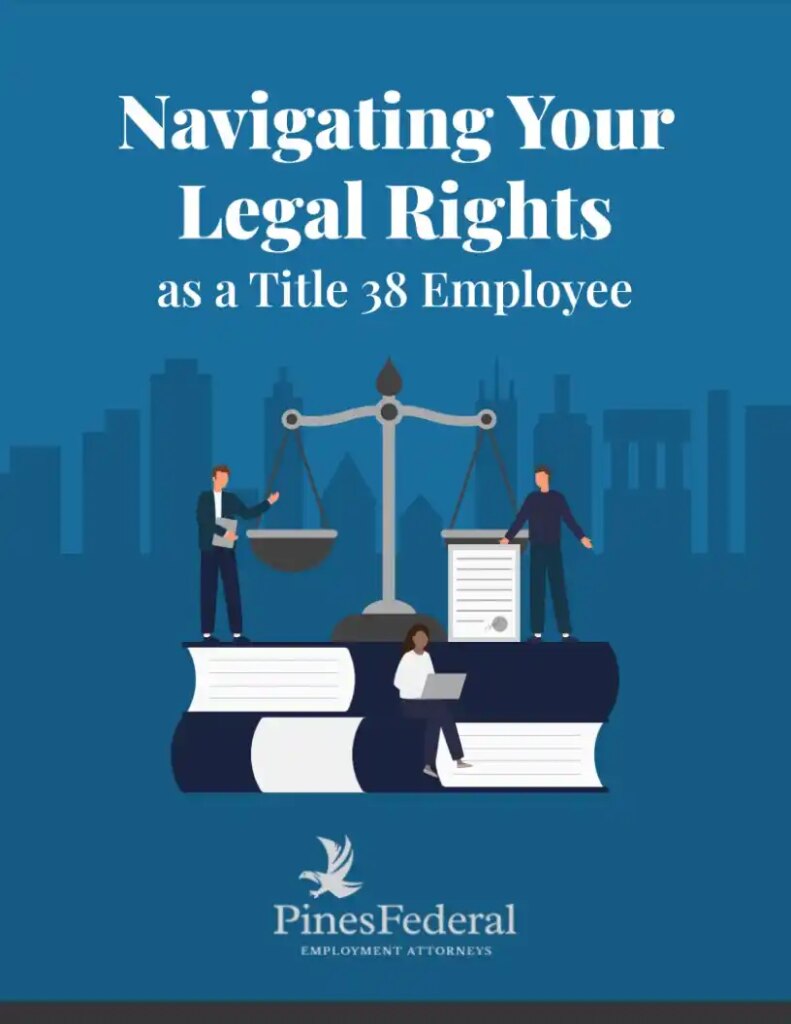
Many federal employees working for the Department of Veterans Affairs (VA) fall under Title 38 of the United States Code. Title 38 wrongful termination laws protect employees.
Among these laws are the Civil Rights Act of 1964 and the Americans with Disabilities (ADA). If you are a Title 38 employee who has received a termination notice from your employer, you have rights.
Read on to learn how Title 38 employee firing laws might protect you.
If you have more questions after reading this article, our talented Title 38 employment lawyers are always available to help you understand your legal options and rights.
Contact us online or call (800) 801-0598 today to learn how we can assist you.
Three Illegal Reasons to Fire a Title 38 Employee
There are many illegitimate reasons for firing a Title 38 employee. Here are a few of the most common ones.
Race
Title VII of the Civil Rights Act of 1964 (Title VII) was the first major federal legislation targeting racial discrimination in the workplace.
It prohibited employment discrimination and harassment based on things like race and color. Insofar as this law is concerned, the word “discrimination” includes any negative treatment that is remotely related to your workplace, including termination.
A good example would be if your boss fired you because he thinks members of your racial group are lazy or stupid.
Sex
Title VII also prohibits discrimination and harassment based on your sex. The federal government’s definition of sex includes not only sexual harassment. It also includes discrimination based on pregnancy, sexual orientation, and gender identity.
Therefore, your boss cannot fire you because they discovered you were pregnant. Nor can they dismiss you because you recently “came out” or began a gender transition.
Disability
The ADA prohibits discrimination and harassment based on physical or mental disability. Any condition that affects any major life activity, such as dressing yourself, eating, sleeping, or thinking, qualifies as a disability.
Even mental impairments like depression and anxiety can qualify as a disability. If your manager fires you because they are worried someone with your condition might request future time off, that would be a clear violation of your rights.
The ADA also imposes a duty on employers to provide you with reasonable accommodation in several situations.
Your employer must provide you with reasonable accommodation that allows you to perform the essential functions of your position unless it would be an undue burden.
Reasonable accommodations can include alterations to your work schedule, your working conditions, and even your telework schedule.
[DOWNLOAD] Legal Rights for Title 38 Employees

What Is the Difference Between Wrongful Termination and Unfair Dismissal?
Generally, the phrases “wrongful termination” and “unfair dismissal” are interchangeable. Both imply that your boss or agency fired you because of an illegal reason. However, some state laws may define the terms differently.
In some states, unfair dismissal can refer to a breach of contract law. Other times, unfair dismissal defines a general situation where your dismissal is unreasonable but not necessarily illegal.
To learn more, we recommend contacting a qualified employment attorney.
Want to Learn More About Title 38 Wrongful Termination Laws? We Can Help
We hope you have a general understanding of the wrongful termination laws protecting Title 38 employees. This article only skims the surface of your legal rights. Federal laws offer far more protections than the ones we briefly mentioned here.
For instance, Title 38 employees receive protection from discrimination based on religion, national origin, and age. So if you want to learn more about how the law applies to your specific situation, it’s best to contact an attorney.
We know we’re not the only federal employment attorneys in the country. However, our attorneys are certainly the cream of the crop.
Our federal employment attorneys are passionate about assisting federal employees. In addition, our attorneys have decades of experience, so they know how to handle virtually every kind of federal employment issue.
Our team has a strong record of success, and we also pride ourselves on offering wonderful customer service. Don’t try to defend your rights against bad actors on your own.
Get the legal representation you deserve. Get started today with an initial consultation by filling out our online form or calling (800) 801-0598.